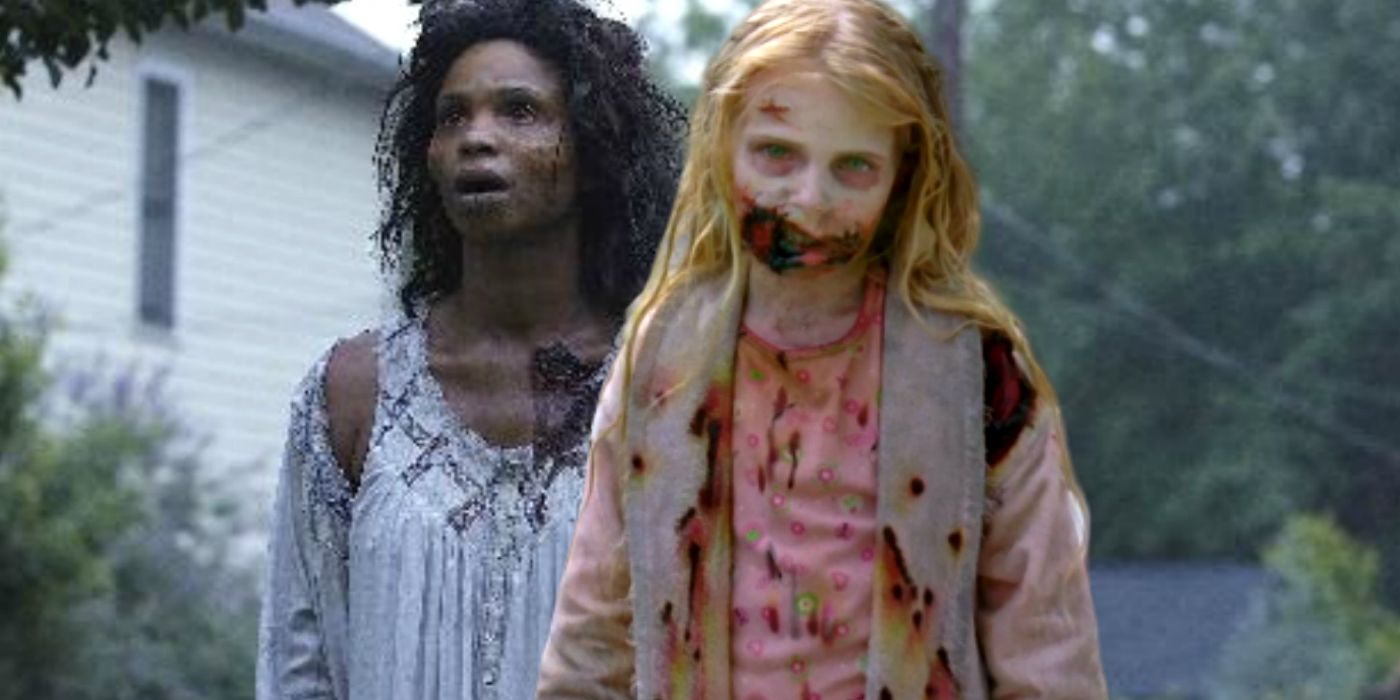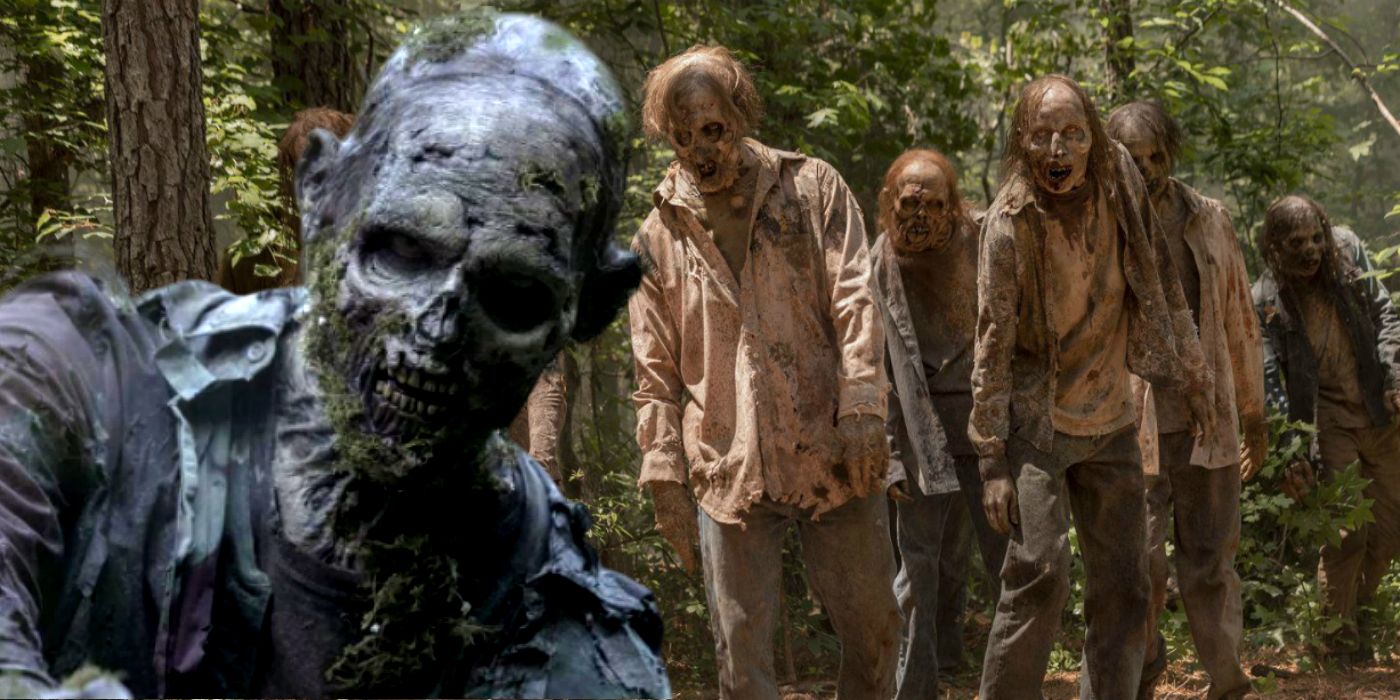The Walking Dead's zombies weren't always just mindless lumps of rotting flesh, but does their devolution have an explanation? Currently in its tenth season, The Walking Dead's zombies are a modern interpretation of the Romero-style zombies first seen in Night of the Living Dead. Reincarnated corpses incapable of communication or rational thinking, the zombification process replaces a person's cognitive reasoning with an unwavering desire to consume flesh. The zombies stagger slowly but relentlessly towards their prey without any kind of emotion, recognition or intelligence.
However, these rules were more flexible during The Walking Dead's debut season. The famous "little girl" zombie that Rick Grimes meets in The Walking Dead's pilot is holding onto a teddy bear as she chases after the sheriff, and the zombie of Morgan's wife tries to break into her former home by turning the doorknob rather than clawing aimlessly at the door like regular zombies. There are numerous other instances of smarter zombies in The Walking Dead season 1, where the undead use tools to try and get to the victims, or evade obstacles rather than aimlessly walking into them. Strangely, there are no instances of this happening any more recently than The Walking Dead's first run of episodes.
The Walking Dead's creator, Robert Kirkman, has addressed the 'intelligent zombie' discrepancy, claiming that some newly-turned zombies, particularly during the early days of the apocalypse, subconsciously clung onto old habits, explaining why a young child might hold their favorite toy, or a zombie might try and enter their old home. This concept isn't alien to the zombie horror sub-genre. In Romero's Dawn of the Dead, the reanimated return to the local shopping mall in order to make a satirical point about mindless consumerism, and this sets a precedent for zombies performing familiar habits or actions. Unfortunately, this reasoning doesn't completely make sense in the context of The Walking Dead.
While the idea of newly-turned zombies repeating instinctive actions isn't problematic in itself, The Walking Dead hasn't been consistent. Over the past 9 seasons, there have been plenty of fresh zombies, with countless characters undergoing the transformation and coming back to life on-screen, but none of them have shown any kind of active subconsciousness in the same way season 1's zombies did. Even if not all walkers retain their instincts, at least a handful of The Walking Dead's departed characters should've fallen into this category instead of becoming as mindless as the rest of the herd.
Some might argue that the 'smart zombie' phenomenon isn't linked to how recently a person died, but how recent the infection was. In this scenario, there would be many more intelligent zombies at the start of the outbreak than by season 10. However, this theory doesn't hold up entirely either. Fear The Walking Dead's first season is set at the very outset of the outbreak prior to the start of the main show, but all of the zombies here are of the standard gormless type.
In truth, the change in The Walking Dead's zombies is almost certainly a creative decision that producers have since tried to retroactively account for. The switch may even have something to do with the departure of Frank Darabont, who served as The Walking Dead's showrunner and was responsible for developing the series in its initial form. Darabont departed under acrimonious circumstances after The Walking Dead's first season and a bitter legal battle ensued. It's possible that the idea for somewhat smarter zombies came from Darabont, and that his replacement, Glen Mazzara, opted to revert to Kirkman's original comic books where the zombies have always been brainless.
The Walking Dead season 10 is currently on hiatus.


